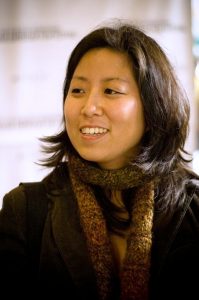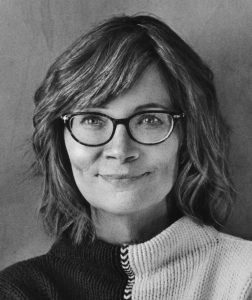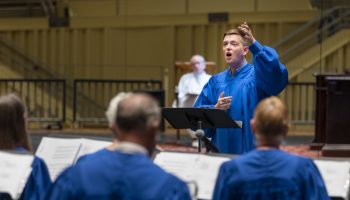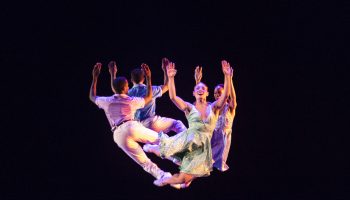As a documentary filmmaker, Grace Lee often talks about who should get to tell what stories.
White men make up the largest demographic of filmmakers, but documentary films are usually about communities of color, Lee said.

“As somebody who is a person of color and a woman and whose work is often immersed in these worlds,” Lee said, “that is something that has been a challenge as a documentary filmmaker in terms of finding funding.”
Ann Hornaday, film critic for The Washington Post, will lead a conversation with Lee at 10:45 a.m. Friday, Aug. 24, in the Amphitheater to conclude the Week Nine theme, “Documentary Film as Facilitator: Storytelling, Influence and Civil Discourse.”
Lee’s body of work includes short-and feature-length films, as well as documentary and narrative storytelling. Her film topics typically derive from her life as an Asian-American.
The first documentary feature she made was called “The Grace Lee Project,” a 2005 film in which she interviewed people with the same name as her. In telling that story, Lee said her challenge was to not come off as self-indulgent, but she believes a filmmaker’s personal story allows audiences to connect with the subject matter.
“For me, ‘The Grace Lee Project’ wasn’t about me wanting to be in a film,” Lee said. “It was about exploring the issues behind having one of the most common Asian-American names and exploring stereotypes of Asian-American women.”

One of the women she interviewed for “The Grace Lee Project” became the subject of “American Revolutionary: The Evolution of Grace Lee Boggs,” which will be shown at 12:30 p.m. Friday, Aug. 24, at Chautauqua Cinema. A talkback with Lee will follow.
Grace Lee Boggs was a civil rights activist from Michigan. Lee had studied history in college but had never heard of Boggs. When she met Boggs, Lee said it was a “no-brainer” to tell her story.
“I’d never met another Asian-American woman from the Midwest who devoted her life to radical politics and philosophy,” Lee said. “There were just so many questions as to how this, at the time, 80-something Chinese-American woman had devoted her life to the black struggle in America.”
“American Revolutionary” has some funny moments in it, Lee said, and humor is a common thread in all of her films. Documentaries can be dark and depressing sometimes, so Lee likes to lighten the mood and look for humorous moments.
“I think if you can disarm people by making them laugh, or making them laugh at you or with you, I feel like there’s an openness,” Lee said. “If you can laugh at the same things, you can maybe approach difficult topics. It opens a door for greater dialogue.”
Lee’s most recent project is a “deconstructed documentary” about the Los Angeles riots of 1992, and it’s a film people can watch for free online.
“K-Town ’92” is an interactive documentary where users can click through interviews and archival footage about the riots, the beating of Rodney King at the hands of police officers, who were later acquitted of all charges at their trial.
When the 25th anniversary of the riots approached, many big studios were working on films.
“Nobody had commissioned me to make one of those films,” said Lee, who lives in Koreatown, Los Angeles. “I knew that there were many stories from this neighborhood that were completely off the radar for so many people and from the mainstream media, so I decided to make something using limited resources and just decided to put it on the internet for everyone to see.”
Lee did not want to narrow the scope of the story. Even in documentary filmmaking, there is a clear point of view. It was different with the 1992 riots, Lee said, because there were so many stories that were lost and forgotten. Lee didn’t want to dictate the narrative. Instead, she left that up to the viewers.
“If you’re questioning who gets to tell the story, then there’s not going to be one monolithic view of what happens,” Lee said. “The audience member themselves can approach it in different ways.”




